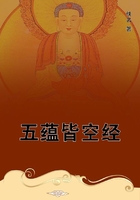In this way the feeling of moral approbation is seen to be the product of time and slow growth of circumstance, a phenomenon to which both reason and sentiment contribute in equal shares in accordance with the laws that condition their development. Moral approbation is no more given instantaneously by sympathy than it is given instantaneously by a moral sense. Sympathy is merely one of the conditions under which it is evolved, one of the feelings which assist in its formation. It is indeed the feeling on which, more than on any other, the moral agencies existing in the world build up and confirm the notions of right and wrong; but it does of itself nothing more than translate feelings from one mind to another, and unless there is a pre-existent moral element in the feeling so translated, the actual passage will not give rise to it. Sympathy enables one man's fear, resentment, or gratitude to become another man's fear, resentment, or gratitude; but the feeling of moral approbation which attends emotions so diffused, arises from reference to ideas otherwise derived than from a purely involuntary sympathyfrom reference, that is, to a standard set up by custom and opinion.
A child told for the first time of a murder might so far enter by sympathy into the resentment of the victim as to feel indignation prompting him to vengeance; but his idea of the murder itself as a wrong and wicked acthis idea of it as a deed morally worse than the slaughter of a sheep by a butcher, would only arise as the result of the various forces of education, availing themselves of the original law of sympathy, by which an act disagreeable to ourselves seems disagreeable in its application to others. And what is true in this case, the extreme form of moral disapprobation, is no less true in all the minor cases, in which approbation or the contrary is felt.
The feeling of moral approbation is therefore much more complex than it is in Adam Smith's theory. Above all things it is one and indivisible, and it is impossible to distinguish our moral judgments of ourselves from our judgments of others. There is an obvious inconsistency in saying that we can only judge of other people's sentiments and actions by reference to our own power to sympathize with them, and yet that we can only judge of our own by reference to the same power in them. The moral standard cannot primarily exist in ourselves, and yet, at the same time, be only derivable from without. If by the hypothesis moral feelings relating to ourselves only exist by prior reference to the feelings of others, how can we at the same time form any moral judgment of the feelings of others by reference to any feelings of our own?
But although the two sides of moral feeling are thus really indistinguishable, the feeling of self-approbation or the contrary may indeed be so much stronger than our feeling of approval or disapproval of others as to justify the application to it of such terms as Conscience, Shame, Remorse. The difference of feeling, however, is only one of degree, and in either case, whether our own conduct or that of others is under review, the moral feeling that arises is due to the force of education and opinion acting upon the various emotions of our nature. For instance, a Mohammedan woman seen without a veil would have the same feeling of remorse or of moral disapprobation with regard to herself that she would have with regard to any other woman whom she might see in the same condition, though of course in a less strong degree. In either case her feeling would be a result of all the complex surroundings of her life, which is meant by education in its broadest sense.
Sympathy itself would be insufficient to explain the feeling, though it might help to explain how it was developed. All that sympathy could do would be to extend the dread of punishment associated by the woman herself with a breach of the law, to all women who might offend in a similar way;the original feeling of time immorality of exposure being accountable for in no other way than by its association with punishment, ordained by civil or religious law, or by social custom, and enforced by the discipline of early home life. It is obvious that the same explanation applies to all cases in which moral disapprobation is felt, and conversely to all cases in which the sentiment of moral approbation arises.
NOTES:
1. Mémoires , i. 244. "Sa Théorie des Sentiniens Moraux m'avait donné une grande idée de sa sagacité et sa sa profondeur." Yet, according to Grimm, it had no success in Paris. Corresp ., iv. 291.
2. See, for some anecdotes of this kind, the Quarterly Review , vol. xxxvi. 200.
3. To this hope he still clung even in the sixth edition of his work, published the year of his death, 1790.
4. A few of his letters are published in Lord Brougham's Account of Adam Smith's Life and Works , i. 279-89.
5. Lessing, in his Laocoon , iv. 3, criticizes Adam Smith's remarks on this subject.
6. It is remarkable, an characteristic of the difference of feeling between Adam Smith's time and our own, that he should have mentioned this fact in the criminal law of his time, without the slightest comment of disapproval.
7. Cf. Hor. Sat. i. 45-6.
8. Active and Moral Powers , vol. i., p. 412.
9. Yet in his Essay on the External Senses , of which the date is uncertain, and in his History of Astronomy, which he certainly wrote before 1768, mention is made by Adam Smith of the association of ideas. It is probable, however, that he was acquainted with the doctrine, not from Hartley, but from Hume's statement of it in the Inquiry concerning Human Understanding .
10. Progress of Ethical Philosophy , p. 240;compare also Dugald Stewart's Active and Moral Powers , vol. i., p. 331.
11. Introduction to Ethics ; translation, vol. ii., p. 147.
12. Lectures on Ethics , p. 13.
13. Bain, Mental and Moral Science , p 277.















